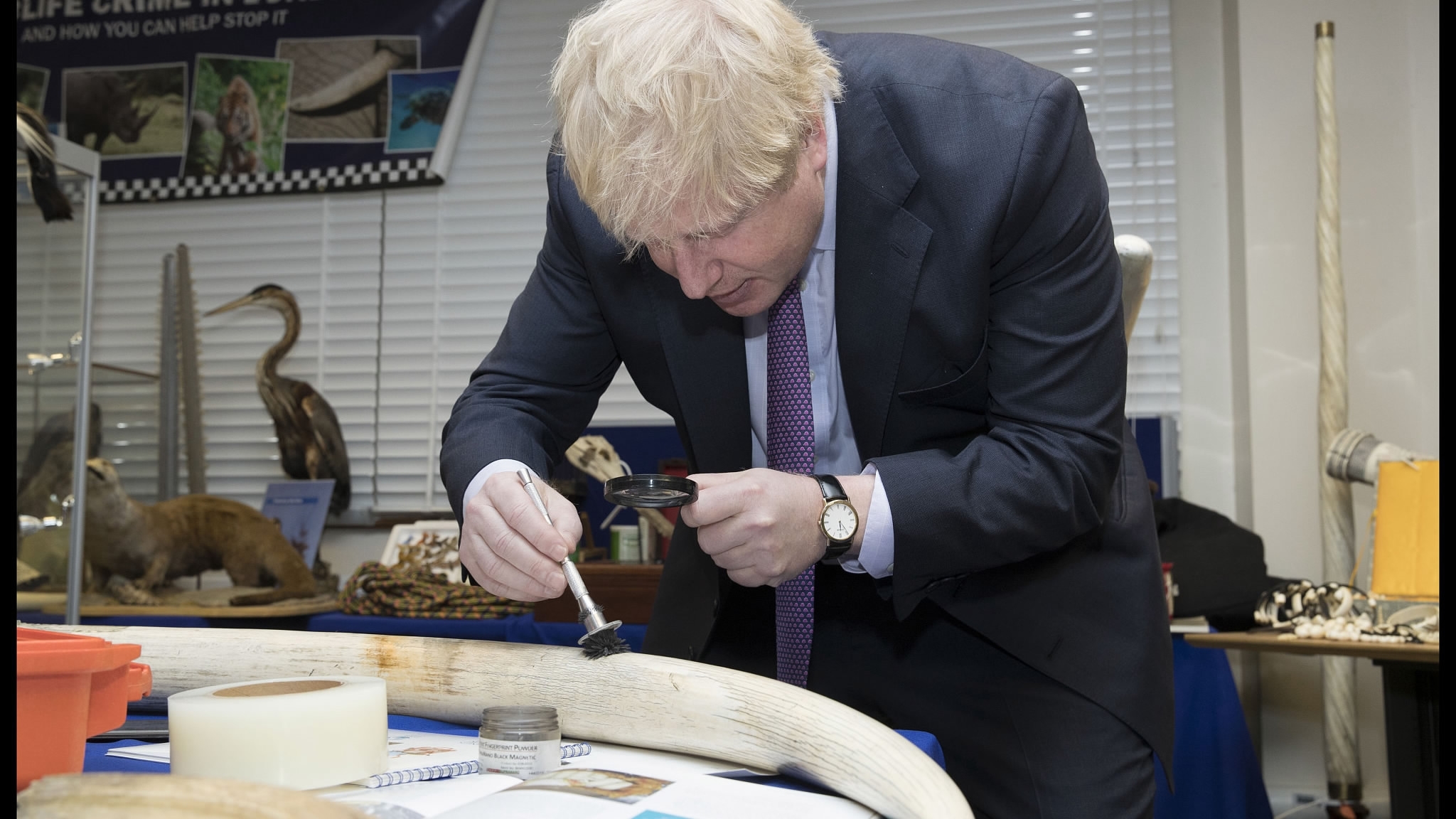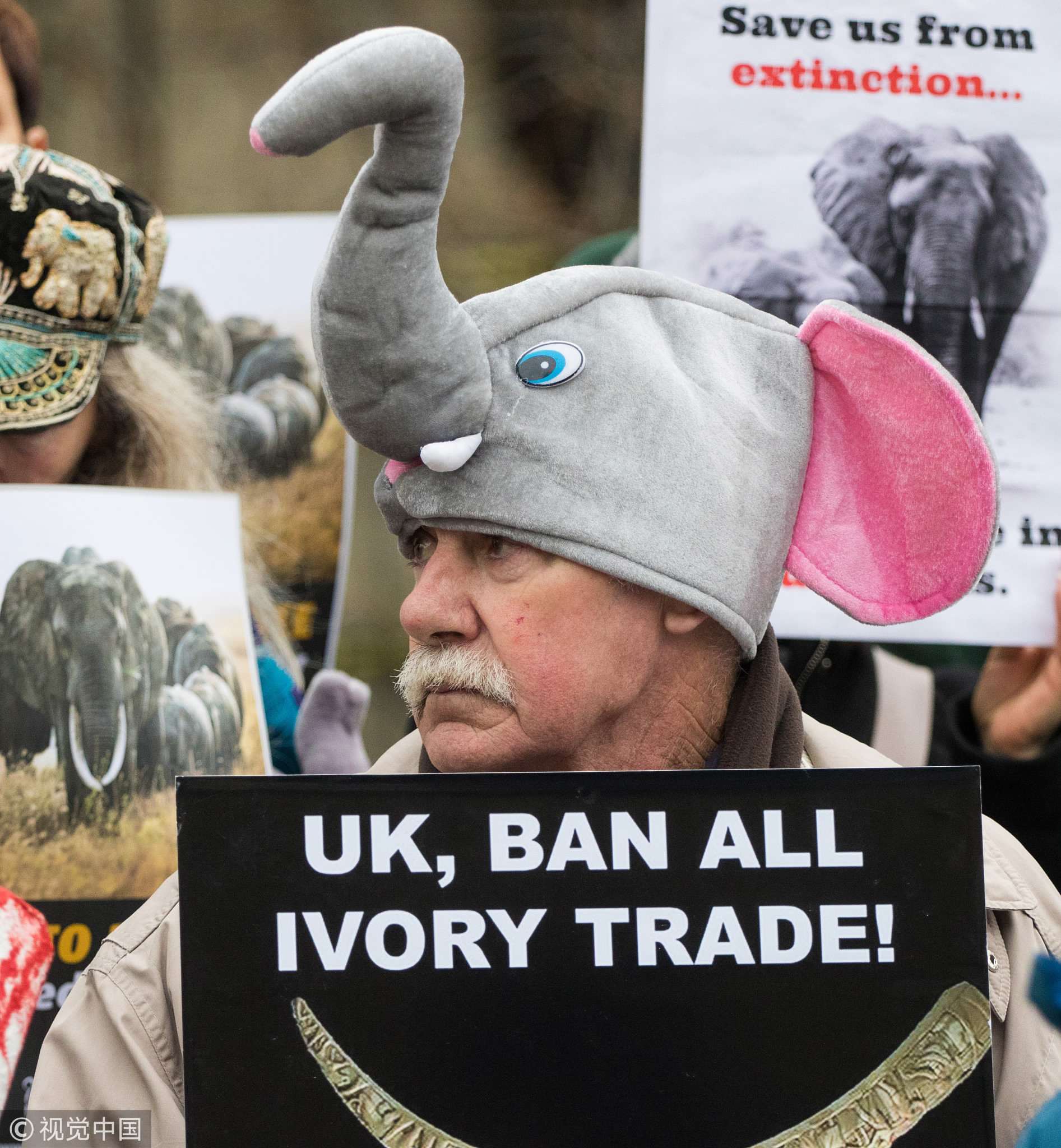
Tech & Sci
14:24, 04-Apr-2018
Pressure mounts on Japan as UK, China's Taiwan ban ivory trade
Alok Gupta

The UK and China’s Taiwan on Tuesday announced to ban ivory trade. While the UK ban will be one of the strictest in the world, Taiwan is amending laws for an effective ban in 2020.
The British government had initiated a public consultation to enforce the ban. “Ivory should never be seen as a commodity for financial gain or a status symbol, so we will introduce one of the world’s toughest bans on ivory sales to protect elephants for future generations,” Michael Gove, UK’s environment secretary said.
From 2010 to 2015, Britain was the largest exporter of antique ivory, World Wildlife Fund for Nature (WWF) claimed, and it allowed domestic trade of carved ivory before 1990. Global demand for ivory leads to poaching of more than 20,000 African elephants every year.
Animal rights activists have been accusing European Union (EU) and Japan of fueling global ivory trade for refusing to curb its illegal trading. As a result, Chinese mainland and its special administrative region (SAR) Hong Kong law enforcement agencies are under severe stress, they claimed.
According to Ban Ivory Sales, a group of organizations campaigning to end ivory trade, UK imported ivory from more than one million dead elephants, mainly in colonial times, to be turned into carvings, billiard balls, hairbrush handles, piano keys and other household goods. “People in some places such as China [Chinese mainland] and Hong Kong are keen to buy antiques from the UK.”

February 7, 2017: Protestors call for a ban on ivory trade outside the Houses of Parliament in London, England. /VCG Photo
February 7, 2017: Protestors call for a ban on ivory trade outside the Houses of Parliament in London, England. /VCG Photo
Chinese mainland and Hong Kong SAR banned ivory trade early this year putting pressure on developed countries to enact similar laws. Concerned over the massive public outcry to protect elephants from poaching, UK Prime Minister Theresa May announced a joint UK-China effort to toughen international action against illegal wildlife trading during her recent three-day visit in China.
"The UK and other jurisdictions are following China's lead in banning the ivory trade to provide much-needed relief to Africa's elephants. Now all attention should be on Japan that continues to have a weakly-regulated ivory trade as the last step to consigning this destructive trade to history," Peter Knights, CEO of WildAid told CGTN.
The UK Department of Environment maintained, in line with the approach taken by other countries, including the United States and China, that there will be certain narrowly-defined and carefully-targeted exemptions for items which do not contribute to the poaching of elephants.
“The ban on ivory sales, we will bring into law, will reaffirm the UK’s global leadership on this critical issue, demonstrating our belief that the abhorrent ivory trade should become a thing of the past,” Gove added.
The UK’s ban will cover ivory items of all ages, making it one of the toughest in the world. The US federal ban exempts all items older than 100 years as well as items with up to 50 percent of ivory content. The Chinese ban exempts ivory “relics” without setting a date before which these must have been produced.
Responding to the UK announcement, John Stephenson, CEO of Stop Ivory, said that the end of ivory trade in the UK removes any hiding place for the illegal activity and sends a powerful message to the world that ivory will no longer be valued as a commodity. “Ivory belongs on an elephant and when the buying stops the killing will stop.”
Meanwhile, Taiwan, which had been debating for a long time to curb ivory trade, announced to impose the ban from 2020. Taiwan’s forest bureau in a statement said that they would amend Wildlife Conservation Act to end ivory trade.
The bureau had announced a blanket ban on ivory trade in 1994. But in lieu of a large stockpile and a large number of carvers and traders dependence on the trade, it rolled back the decision.
“From January 1, 2020, domestic 'ivory or ivory processed products' sale and purchase permit shall be formally ended, and the purchase and sale of ivory-related products shall be completely prohibited to be in line with international elephant conservation work,” a statement released by the department said.

SITEMAP
Copyright © 2018 CGTN. Beijing ICP prepared NO.16065310-3
Copyright © 2018 CGTN. Beijing ICP prepared NO.16065310-3